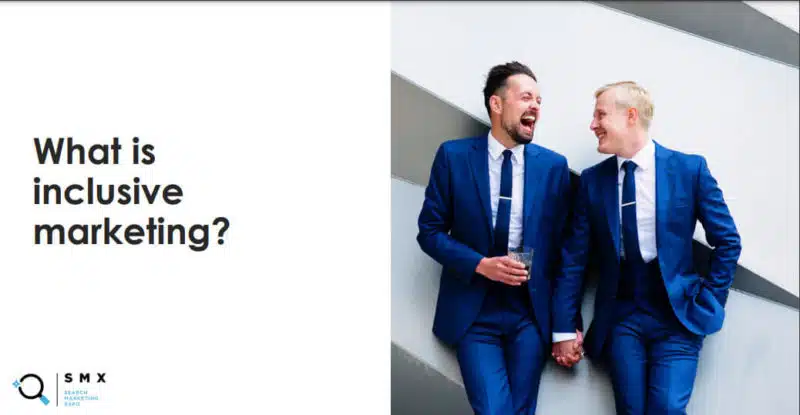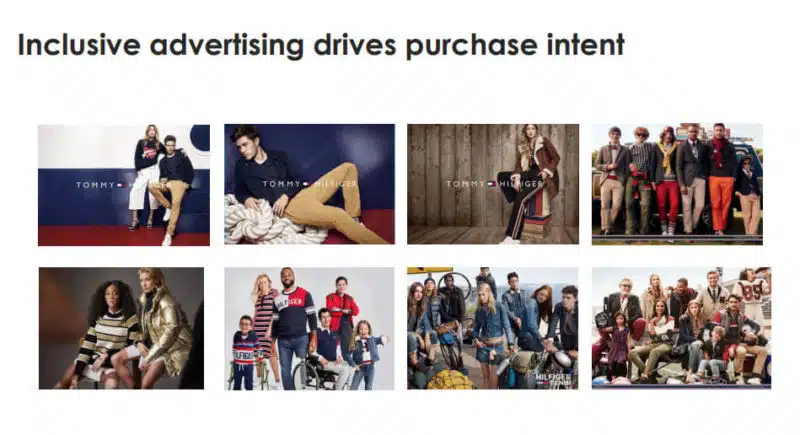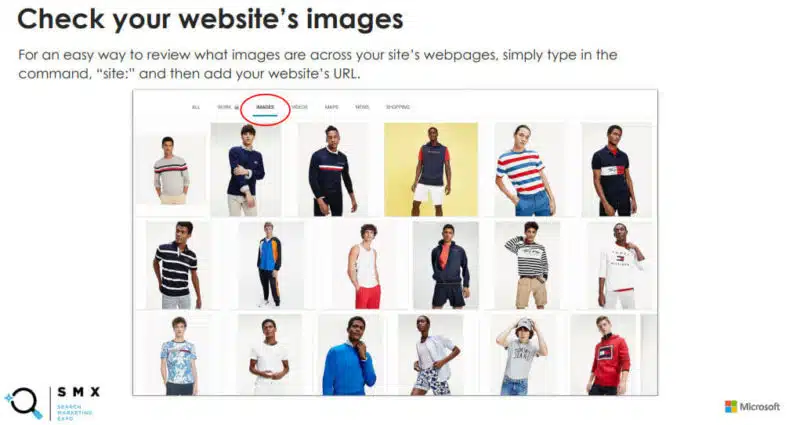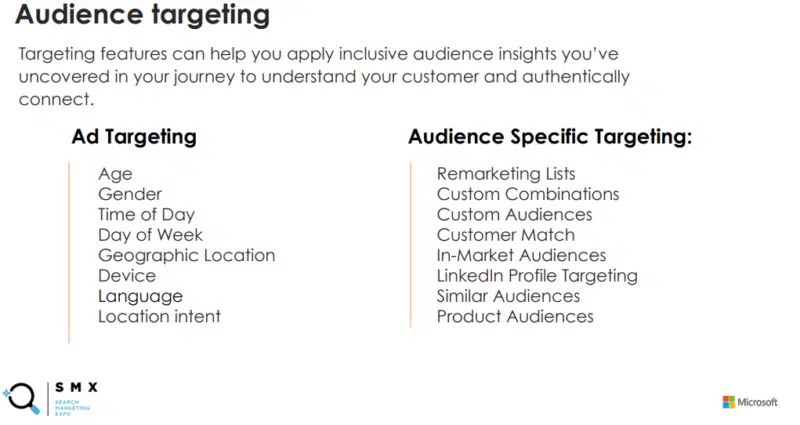How to earn customer trust with inclusive marketing
Inclusivity is a marketing imperative. At SMX Next, Kelli Kemery explained how marketers can make their camapaigns more inclusive.
“Every day we are learning more and more about the importance of representation in products and experiences,” said Kelli Kemery, lead market researcher at Microsoft, in her presentation at SMX Next. “Inclusive marketing helps your brand connect authentically with customers to drive, love, loyalty and trust.”
While many companies once saw inclusivity as an optional addition to their marketing campaigns, it’s become clear that customers want it in the center of brand interactions. And for good reason – embracing inclusive marketing practices helps brands reach those they’ve left out.

“Inclusive marketing invites underrepresented and marginalized people to experience and connect authentically with your brand,” Kemery said. “It elevates diverse voices and stories, questions assumptions and biases and avoids stereotypes.”
Inclusion is a “modern marketing imperative,” she says, and brands that fail to embrace inclusive marketing will find themselves left behind as these trends continue. Here are four actions Kemery recommends marketers take to instill inclusive practices within their campaigns.
Drive purchase intent with inclusive advertising
Kemery pointed to some testing she did to determine if inclusive advertising increased buying intent. Through this research, her team discovered how much intent is directly driven by inclusive elements.

“The first ad felt homey in casual, the model was recognizable in the ad was considered very stylish,” Kemery said. “The second ad was appealing because it felt real. The individuals felt connected like a family. But most importantly, people noted how the ad showed diversity and when asked which ad was most inclusive, this was the clear winner.”
Kemery’s team used these results to develop inclusivity guidelines for brands. But marketing and advertising departments are encouraged to develop their frameworks to transform their campaigns.
Create an inclusive keyword strategy
Inclusivity should apply to the keywords brands use as well. These are the terms audiences — marginalized groups in particular — are using to find brands they trust, .
“Target potential customers based on their needs that map to the keywords that they use to satisfy their unique dimensions of diversity,” said Kemery. “For example, the LGBTQ community, when looking to source a retailer for any given product or service, tends to use the phrase ‘gay-friendly’ as a modifier. This unique phrase could be used as a proxy to help your efforts in personalizing messages or services for this community.”
“As marketers, it is our job to uncover these unique insights with diverse audiences and their unique consumer decision journeys,” she added.

Language-based cues are great at building audience trust, so it’s important to remember to add inclusive terminology to your keyword lists.
“These could be used authentically in your ad copy, advertising, or content to help convey inclusion,” Kemery said.
Develop an inclusive image strategy
“Authentic representation in advertising is important. The images that you choose matter,” Kemery said. “In our research, we found out that there is a strong tie between trust, love and loyalty. Once trust is established as a baseline, a brand can begin to build love and loyalty.
“To do this, the brand must go the extra mile to make someone feel understood through inclusion, and that means authentic imagery,” she added.

Images are great at evoking feelings to solidify consumer trust in your brand. Using inclusive imagery can multiply this trust factor, bringing in a larger audience and building strong relationships with them.
“Choosing imagery is an important part of constructing meaningful and inclusive customer experiences,” she said. “Inclusive brands don’t just want to reach people, they want people to see that the brand is built for them.”
Practice inclusive audience targeting
“Through the customer research that you conduct to better understand your customers’ values and investigate inclusive keyword strategies, the goal is to uncover audiences that you may have overlooked,” said Kemery. “It is imperative to understand audience insights from any of the platforms that you utilize.”
“You can use these insights to find ways to authentically market to unique audiences who index higher for attributes such as valuing contributing to the community, and individuals who often look for brands that engage in their communities as well,” she added.

Building an audience through inclusive practices is a proactive task — marketers need to gain insights from a diverse set of platforms and markets to see what communities they’re neglecting. Expanding campaign reach this way shows these groups your brand cares about them.
Kemery further highlighted the role inclusive marketing has in building long-lasting relationships with customers: “A responsible, values-based and inclusive approach to marketing isn’t just about targeting niche segments, providing product value or policy components. It’s about building genuine relationships with people that celebrate diversity and a wide range of human experiences. Intentional inclusion with purpose woven throughout your brand experience conjures up feelings of acceptance, contentment, confidence, certainty, hope and safety.”
Watch the full SMX Next presentation here (registration required).
Contributing authors are invited to create content for Search Engine Land and are chosen for their expertise and contribution to the search community. Our contributors work under the oversight of the editorial staff and contributions are checked for quality and relevance to our readers. The opinions they express are their own.
Related stories